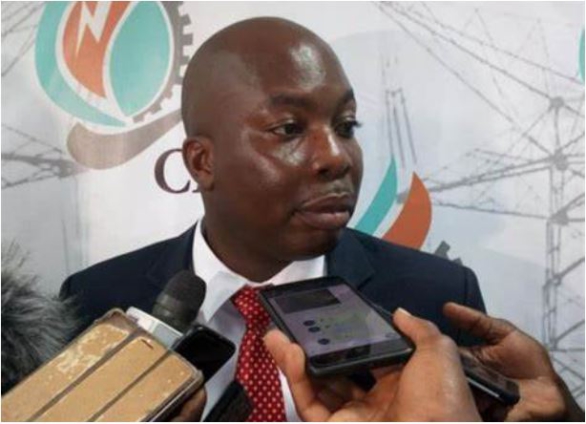The power sector is likely to experience an exacerbated debt of about $1.8 billion to the Independent Power Producers by 2024, the Chamber of Independent Power Generators has disclosed.
This prediction, it said, is based on the Public Utilities Regulatory Commission's decision to further reduce electricity tariffs by 6.56%, warning of inadequate supply of electricity to the national grid.
“The power sector is likely to experience an exacerbated debt of about $1.8 billion to the IPPs alone, by the end of the year 2024. This prediction is based on Public Utilities Regulatory Commission's (PURC) decision to further reduce electricity tariffs by 6.56% amidst escalating variable costs of electricity production such as fuel, maintenance, idle capacity charges, as a result of commissioned generation capacities coming on-grid and off-grid generations. Natural gas, for instance, sells currently at an average high price of 8.8 US Cents/mmscf, continuous depreciation of the Ghana cedi etc”.
Again, it mentioned in a statement that the generation tariffs are set as automatic upward adjustments necessitated by the increasing variable costs and other increased cost events.
Furthermore, it explained that the tariff reductions, while beneficial for consumers, have not been matched with a decrease in production costs, leading to significant financial deficits, adding, “The sector is plagued by inefficiencies, including high transmission and distribution losses, which exacerbate the financial challenges”.
“This situation mirrors the repercussions of similar tariff actions by the PURC in 2018 by 17.5% and 30% for both residential and non-residential customers, which significantly contributed to the financial gap faced by the Electricity Company of Ghana (ECG). Since then, ECG has never met the revenue requirement of the sector. This has placed an avoidable strain on the ECG’s sustainability, resulting in a cycle of financial insolvency, operational and governance deficiencies”, it alluded.
It continued that the core of ECG's financial woes lies in the imbalance between revenue generation and operational costs.
“Despite ECG’s commitment to a fixed $43 million monthly sum to IPPs, it continues to pile up about 70% of its monthly obligations to the Independent Power Producers alone. With this tariff reduction, the Government of Ghana renegotiation appeals to IPPs may hit the rock, as the risk of default on obligations going forward becomes high”, it concluded.
Latest Stories
-
Actors Jonathan Majors and Meagan Good are engaged
5 mins -
Expired rice saga: A ‘best before date’ can be extended – Food and Agriculture Engineer
13 mins -
Why I rejected Range Rover gift from a man – Tiwa Savage
13 mins -
KNUST Engineering College honours Telecel Ghana CEO at Alumni Excellence Awards
47 mins -
Postecoglou backs Bentancur appeal after ‘mistake’
56 mins -
#Manifesto debate: NDC to enact and pass National Climate Law – Prof Klutse
1 hour -
‘Everything a manager could wish for’ – Guardiola signs new deal
1 hour -
TEWU suspends strike after NLC directive, urges swift resolution of grievances
1 hour -
Netflix debuts Grain Media’s explosive film
2 hours -
‘Expired’ rice scandal: FDA is complicit; top officials must be fired – Ablakwa
2 hours -
#TheManifestoDebate: We’ll provide potable water, expand water distribution network – NDC
3 hours -
IPR Ghana@50: Pupils educated to keep the environment clean
3 hours -
PenTrust CEO named ‘Best Pensions CEO’, company wins ‘Scheme Administrator Award’ at Ghana Accountancy & Finance Awards 2024
3 hours -
Alan Kyerematen’s ‘Brighter Future for Health Professionals’ in Ghana Revealed in Bono
3 hours -
#TheManifestoDebate: NPP will ensure a safer, cleaner and greener environment – Dr Kokofu
3 hours

